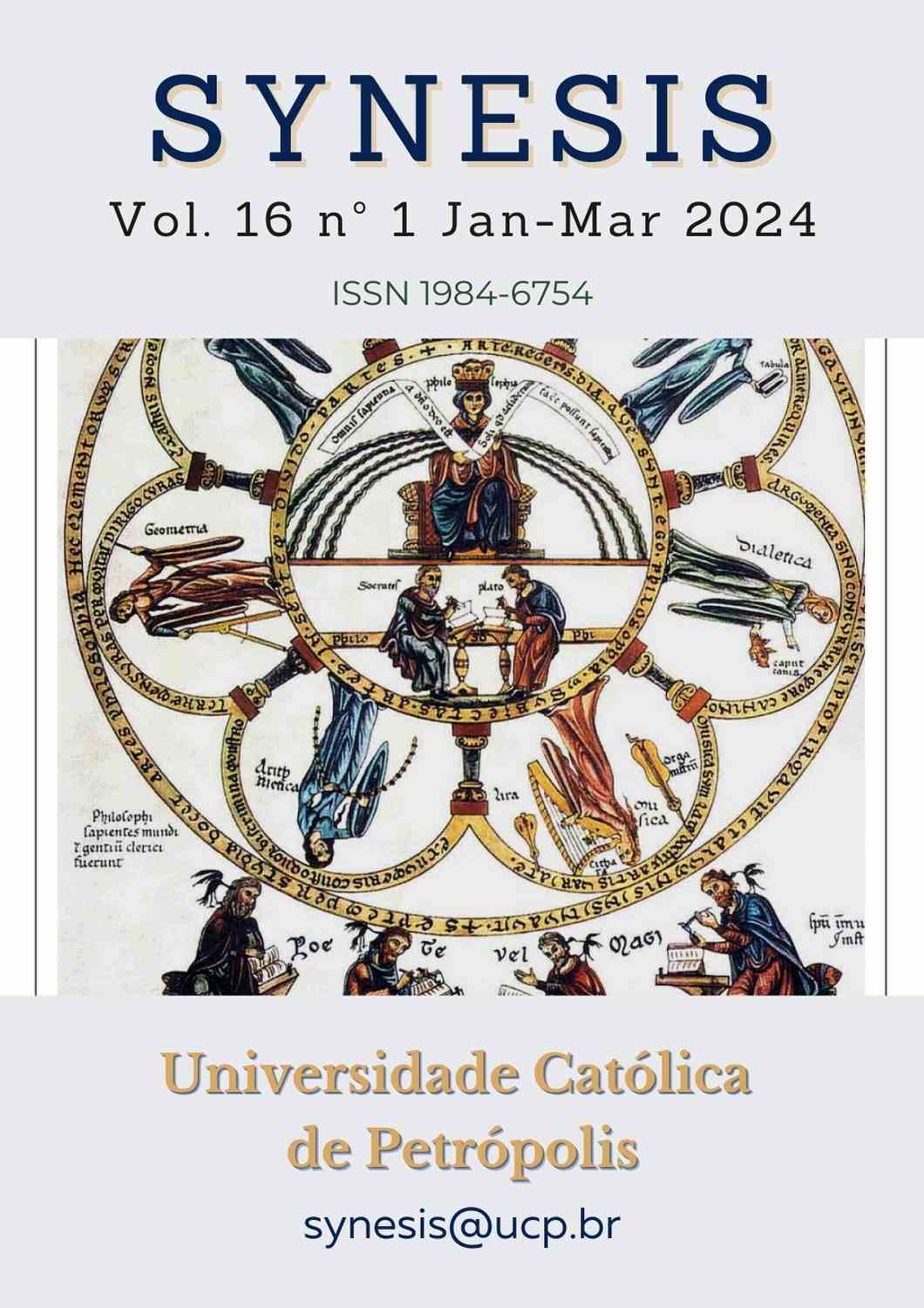Abstract
In the approach of the second navigation, Plato establishes a basic landmark in philosophy, that is, the passage from the sensible world to the supersensible or metaphysics. But, after all, what is the limit of the metaphysical investigation that Plato inaugurates and, consequently, what would be the first principles? The answer to this question can be found in Plato's work, since the philosopher himself aims to establish the existence of a first cause or a being that is superior. The object of investigation of this article is within the scope of Platonic metaphysics and the question to be answered is: what is the argument proposed by Plato to support the existence of God? The method used to carry out this research will be essentially hermeneutic and analytical, as the aim is to understand and analyze Platonic thought, especially in chapter X of the book As Leis. This article is structured in three parts. In the first, we situate in which scope the author's thought is inserted, namely, in the belief in the existence of the gods from the Greek culture that Plato considers to be worthy of belief due to their antiquity and the evidence present throughout the universe. In the second part, we will expose the arguments that support the existence of God present in Plato's work. It lays the foundations for countless proofs that will do so. Finally, in the third part we will identify developments arising from Plato's conception of God.
References
AGOSTINHO. Confissões. 18. ed. Petrópolis, RJ: Vozes, 2002.
_____________. A Cidade de Deus: (contra os pagães) parte I. 2. ed. Petrópolis, RJ: Vozes, 2017.
ARISTÓTELES. Ética a Nicômaco. 4. ed. São Paulo: Nova Cultural, 1991. Disponível em: <http://portalgens.com.br/portal/images/stories/pdf/aristoteles_etica_a_nicomaco_poetica.pdf>. Acesso em: 15 jun. 2021.
_____________. Metafísica. trad. Marcelo Perine. São Paulo: Loyola, 2002.
DODDS, Eric Robertson. Os Gregos e o irracional. Tradução de Paulo Domenech Oneío. São Paulo: Escuta, 2002.
HIRSCHBERGER, Johannes. Historia de la Filosofía. Barcelona: Herder, 2011. Disponível em: <https://pt.br1lib.org/book/5708813/5ae02b>. Acesso em: 15 jun. 2021.
JAEGER, Werner Wilhelm. Paideia: a formação do homem grego. 6. ed. São Paulo: WMF Martins Fontes, 2013.
PLATÃO. As Leis. 2. ed. Bauru, SP: EDIPRO, 2010.
_____________. Diálogos - O Banquete - Fédon - Sofista - Político. São Paulo: Abril Cultural, 1972.
_____________. Timeu-Crítias. 1. ed. Coimbra: Centro de Estudos Clássicos e Humanísticos da Universidade de Coimbra, 2011.
REALE, Giovanni. Para Uma Nova Interpretação de Platão. São Paulo: Loyola, 1997.
_____________; ANTISERI, Dario. História da filosofia: filosofia pagã antiga. 3. ed. São Paulo: Paulus, 2007.
WHITEHEAD, Alfred. Proceso y realidade. Buenos Aires: Losada, 1956.
FREIRE, António. As provas da existência de Deus em Platão. Revista Portuguesa de Filosofia, v.27, n.3, p.225-256. Jul-Set/1971. Disponível em: <http://www.jstor.org/stable/40335073>. Acesso em: 15 jun. 2021.
_____________. Aspectos da ideia de Deus em Platão. Revista Portuguesa de Filosofia, v.23, n.2, p.135-160. Abr-Jun/1967. Disponível em: <http://www.jstor.org/stable/27860106> Acesso em: 15 jun. 2021.
BRISON, Luc. A religião como fundamento da reflexão filosófica e como meio de ação política nas Leis de Platão. Kriterion: Revista de Filosofia, n.107, p.24-38. Jun/2003. Disponível em: < https://www.scielo.br/j/kr/a/PxqKdCz9Vc5VBR3b9MD3ddj/?lang=pt>. Acesso em: 05 nov. 2021.

This work is licensed under a Creative Commons Attribution-NonCommercial-NoDerivatives 4.0 International License.
Copyright (c) 2023 Synesis (ISSN 1984-6754)

